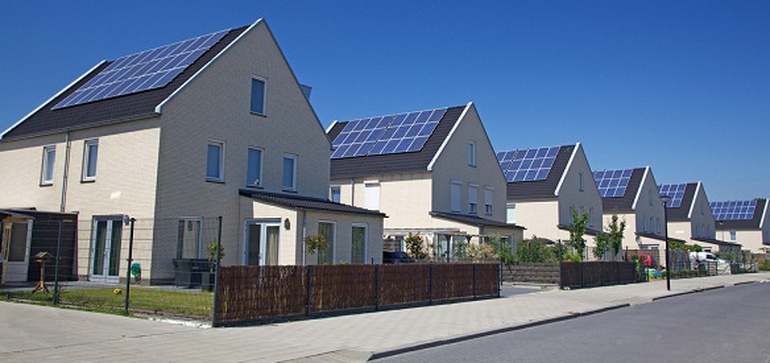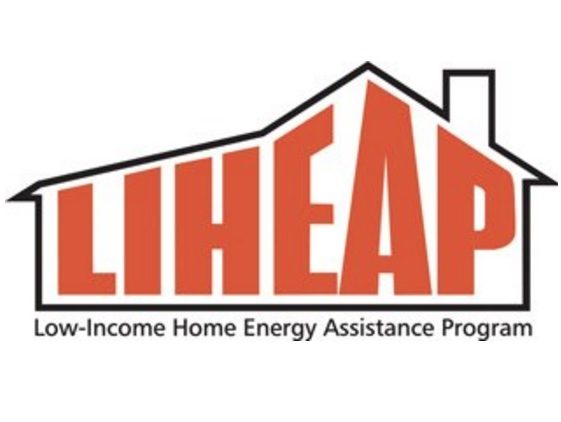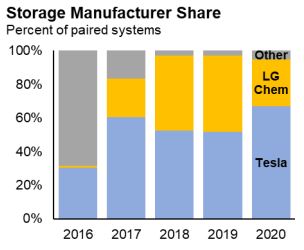Mandated energy efficiency scores would influence home buying: ACEEE – Smart Cities Dive
Energy Disrupter

Dive Brief:
- The inclusion of home energy efficiency scores in online real estate listings would influence buyers to purchase more efficient homes, according to research from the American Council for an Energy-Efficient Economy (ACEEE).
- The first-of-its-kind study presented a sample of more than 1,500 potential homebuyers with a mock real estate website of home listings, some of which included energy efficiency scores. The study found that participants who were shown energy efficiency scores were 14% more likely to click on the most-efficient option and 23% less likely to click on the least-efficient option, compared with those who did not see the scores at all.
- The researchers recommend that policymakers require efficiency information in all real estate website listings; use an intuitive scoring system to present energy information; and consider complementary policies to help buyers find affordable, efficient homes.
Dive Insight:
Residential homes account for more than half of buildings’ energy use in the United States, ACEEE reports, with the residential sector having emitted nearly 950 million metric tons of CO2 in 2019. Detailed research on how U.S. homeowners value energy efficiency information has been virtually unavailable until now and even this study indicates the need for more research on the topic, said Reuven Sussman, director of Behavior and Human Dimensions Program and report co-author.
Sussman’s research found Portland, OR is the only U.S. city that currently requires efficiency information in real estate listings, under a Home Energy Score ordinance that took effect on Jan. 1, 2018. The Commonwealth of Massachusetts and other governments have proposed similar legislation to require efficiency data in listings of homes for sale. However, those measures have not made progress.
When asked about the opposition to these measures, Sussman pointed to the real estate industry. Realtors are concerned that factoring energy efficiency into the home purchasing decision could threaten sales and slow down an already burdensome process, Sussman said.
“We get a lot of pushback from realtors who are concerned that anything that could slow down the sale process could reduce the number of sales they’d get.” Sussman said. “An average realtor sells 4-5 homes in a year. If something can make the difference between four and five, it’s a big deal for them.”
This claim may not apply as widely as Sussman suggests, however. A March 2019 survey from the National Association of Relators (NAR) found 69% of its responding members see energy efficiency promotion in listings as “very or somewhat valuable,” while 41% of respondents said their multiple listing service (MLS) has green data fields that are typically used.
These findings indicate that more energy efficiency promotion in the real estate sector could be a promising step forward, yet governments are still slow to take action. Portland’s mandate could be a turning point, Sussman said, noting he’s “very heartened” by the city’s efforts to increase the transparency of efficiency data.
But even if cities mandate inclusion of this data, another hurdle may appear in the way it’s listed — a factor that ACEEE analyzed in this study through the use of five various displays. The research found displaying a home energy score (HES) along a continuum from inefficient to efficient was the most effective format, as it’s easy to understand and is visually prominent, Sussman said.
In developing policies around HES listings, Sussman said a streamlined format for score displays “can go a long way to helping consumers” in understanding and recognizing the data. Requiring these displays on every listing — not just those that are energy-efficient — is crucial in making efficiency a default consideration among homebuyers, Sussman said.
Another obstacle in mandating energy efficiency scores in real estate listings is the potential impact it could have on low-income buyers and sellers. The report cautioned that these groups could be “adversely affected” by energy efficiency disclosure requirements, especially as research shows homebuyers are willing to pay a premium for more efficient homes.
Sussman said he has not conducted research on the correlation of home costs and energy efficiency. Yet he said it’s pertinent for researchers to find complementary policies that could aid these groups in navigating a home market where energy efficiency information is available.
As the findings of this report are shared with industry leaders and report sponsors, Sussman said he is preparing for a follow-up study on the value of energy efficiency scores in rental listings, pending available funding.
Original Source: https://www.smartcitiesdive.com/news/energy-efficiency-scores-home-buying-aceee/582974/
















